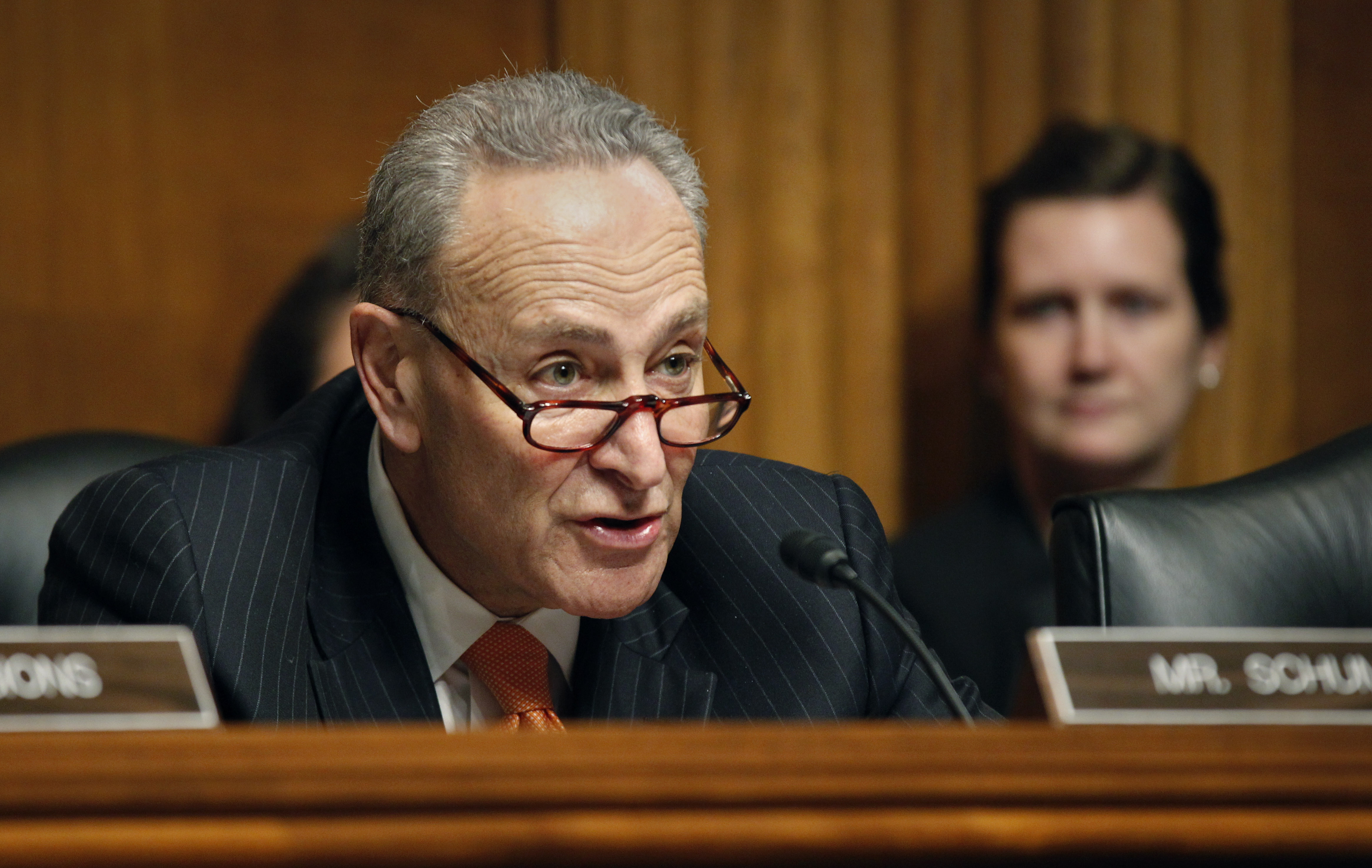The fight for Net Neutrality has been fraught and strained since the Federal Communications Commission (FCC) got Ajit Pai as its chair. Now, Senate Democrats just need one more vote to finally save a truly free and open internet. Unfortunately, with a Republican majority house, these senators are facing a tough battle to get that vote.
Senator Chuck Schumer, the current big boss in the Democrat side of the house, said that their side only needs one more Republican to come over and give the FCC a slap for voting to end Net Neutrality, Engadget reports. The Democrats already have 50 votes and one more would give them the majority.
Once the vote has been passed, it would not only restore actual internet freedom and regulations on ISPs, it would also take away the FCC’s power to make similar moves in the future. As such, this one vote could ensure that Net Neutrality would be protected for the foreseeable future.
So far, only one Republican has opted to support the resolution, Senator Susan Collins of Maine. All 49 Senate Democrats are firmly behind the bill. Unfortunately, if staunch Republican, Vice President Mike Pence decides to cast his vote to break the tie, it could all come tumbling down. At this point, it’s safe to say that the pressure on the Democrat’s side is enormous.
Adding to the strain is the time limit in which the vote can be decided. As Phone Arena notes, the Senators only had 60 days to challenge the FCC’s decision to gut Net Neutrality and now, they only have half of that time to work with.
With so many other legislation on the floor and a potential government shutdown hanging over everyone’s heads, Senate Democrats have a very brief window to push this resolution through. If they fail, Net Neutrality officially dies.



 OpenAI Expands Enterprise AI Strategy With Major Hiring Push Ahead of New Business Offering
OpenAI Expands Enterprise AI Strategy With Major Hiring Push Ahead of New Business Offering  Nvidia Nears $20 Billion OpenAI Investment as AI Funding Race Intensifies
Nvidia Nears $20 Billion OpenAI Investment as AI Funding Race Intensifies  Baidu Approves $5 Billion Share Buyback and Plans First-Ever Dividend in 2026
Baidu Approves $5 Billion Share Buyback and Plans First-Ever Dividend in 2026  Tencent Shares Slide After WeChat Restricts YuanBao AI Promotional Links
Tencent Shares Slide After WeChat Restricts YuanBao AI Promotional Links  Palantir Stock Jumps After Strong Q4 Earnings Beat and Upbeat 2026 Revenue Forecast
Palantir Stock Jumps After Strong Q4 Earnings Beat and Upbeat 2026 Revenue Forecast  Nvidia Confirms Major OpenAI Investment Amid AI Funding Race
Nvidia Confirms Major OpenAI Investment Amid AI Funding Race  TSMC Eyes 3nm Chip Production in Japan with $17 Billion Kumamoto Investment
TSMC Eyes 3nm Chip Production in Japan with $17 Billion Kumamoto Investment  Instagram Outage Disrupts Thousands of U.S. Users
Instagram Outage Disrupts Thousands of U.S. Users  SpaceX Updates Starlink Privacy Policy to Allow AI Training as xAI Merger Talks and IPO Loom
SpaceX Updates Starlink Privacy Policy to Allow AI Training as xAI Merger Talks and IPO Loom  SpaceX Pushes for Early Stock Index Inclusion Ahead of Potential Record-Breaking IPO
SpaceX Pushes for Early Stock Index Inclusion Ahead of Potential Record-Breaking IPO  AMD Shares Slide Despite Earnings Beat as Cautious Revenue Outlook Weighs on Stock
AMD Shares Slide Despite Earnings Beat as Cautious Revenue Outlook Weighs on Stock  SoftBank Shares Slide After Arm Earnings Miss Fuels Tech Stock Sell-Off
SoftBank Shares Slide After Arm Earnings Miss Fuels Tech Stock Sell-Off  SoftBank and Intel Partner to Develop Next-Generation Memory Chips for AI Data Centers
SoftBank and Intel Partner to Develop Next-Generation Memory Chips for AI Data Centers  Nintendo Shares Slide After Earnings Miss Raises Switch 2 Margin Concerns
Nintendo Shares Slide After Earnings Miss Raises Switch 2 Margin Concerns  Alphabet’s Massive AI Spending Surge Signals Confidence in Google’s Growth Engine
Alphabet’s Massive AI Spending Surge Signals Confidence in Google’s Growth Engine  Elon Musk’s Empire: SpaceX, Tesla, and xAI Merger Talks Spark Investor Debate
Elon Musk’s Empire: SpaceX, Tesla, and xAI Merger Talks Spark Investor Debate 































